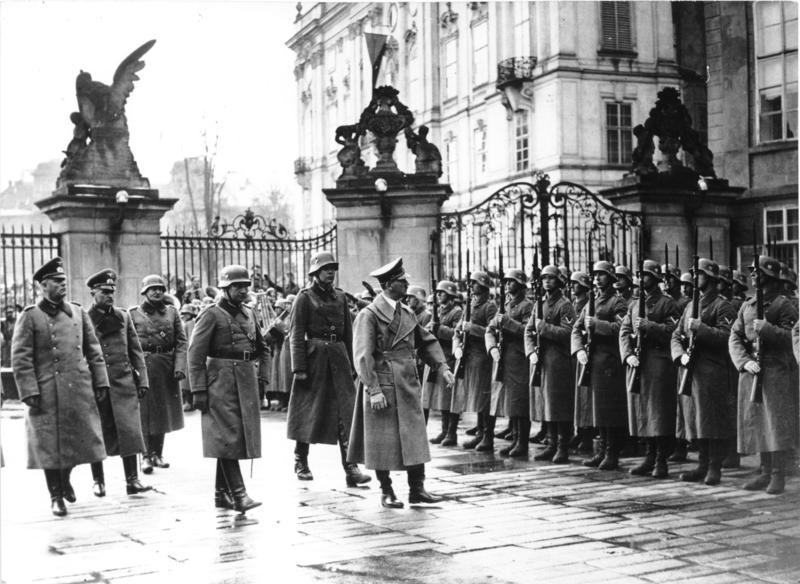The German Occupation Begins: Czechoslovakia Falls under Nazi Control (1939)
On March 18, 1939, the German occupation of Czechoslovakia began as Adolf Hitler established the Protectorate of Bohemia and Moravia. This dismantled Czechoslovakia and placed the Czech lands under German control, marking a dark chapter in the nation’s history. The widespread suffering and persecution of the Czech people during World War II influenced Czechoslovakia’s post-war development and eventual transformation into a communist state under Soviet influence.
Birth of Josef Čapek: A Pioneering Artist and Writer Who Shaped Czech Culture (1871)
Josef Čapek, a prominent Czech artist and writer, was born on March 18, 1871, in Hronov. Best known for his collaboration with his brother, Karel Čapek, on literary works such as the play “R.U.R. (Rossum’s Universal Robots),” the term “robot” was coined by Karel and first appeared in this play. Josef’s artistic and literary contributions significantly impacted Czech culture and left a lasting impression on the world, especially in the realm of science fiction.
Tragic Mistake: The Accidental Bombing of Prague by U.S. Air Force (1945)
On March 18, 1945, the U.S. Army Air Forces mistakenly bombed the Czech capital, Prague, during World War II. Due to navigational errors, the intended target of Dresden, Germany, was missed, resulting in the death of approximately 700 Czech civilians and significant damage to the city’s infrastructure and historic sites. The bombing intensified the suffering of the Czech people during the war and contributed to the tense relations between Czechoslovakia and the West in the post-war period.
Injustice Prevails: The Execution of General Heliodor Píka (1953)
General Heliodor Píka, a high-ranking Czechoslovak military officer, was executed on March 18, 1953, following a show trial orchestrated by the communist government. Falsely accused of espionage and treason during the early years of the Cold War, Píka’s execution demonstrated the oppressive nature of the communist regime in Czechoslovakia and its efforts to maintain control. His case became a symbol of political persecution, and in 1990, he was posthumously rehabilitated.
Celebrating National Pride: The Opening of the Czech National House in Prague (1913)
The Czech National House, a significant cultural institution, officially opened its doors in Prague on March 18, 1913. Designed by renowned Czech architect Osvald Polívka, the building became a hub for Czech cultural activities, including theater, music, and art exhibitions. The Czech National House played a vital role in promoting and preserving Czech culture during the Austro-Hungarian Empire and the period of Czechoslovakia’s independence. Today, it continues to serve as a cultural landmark and a symbol of Czech national pride.





